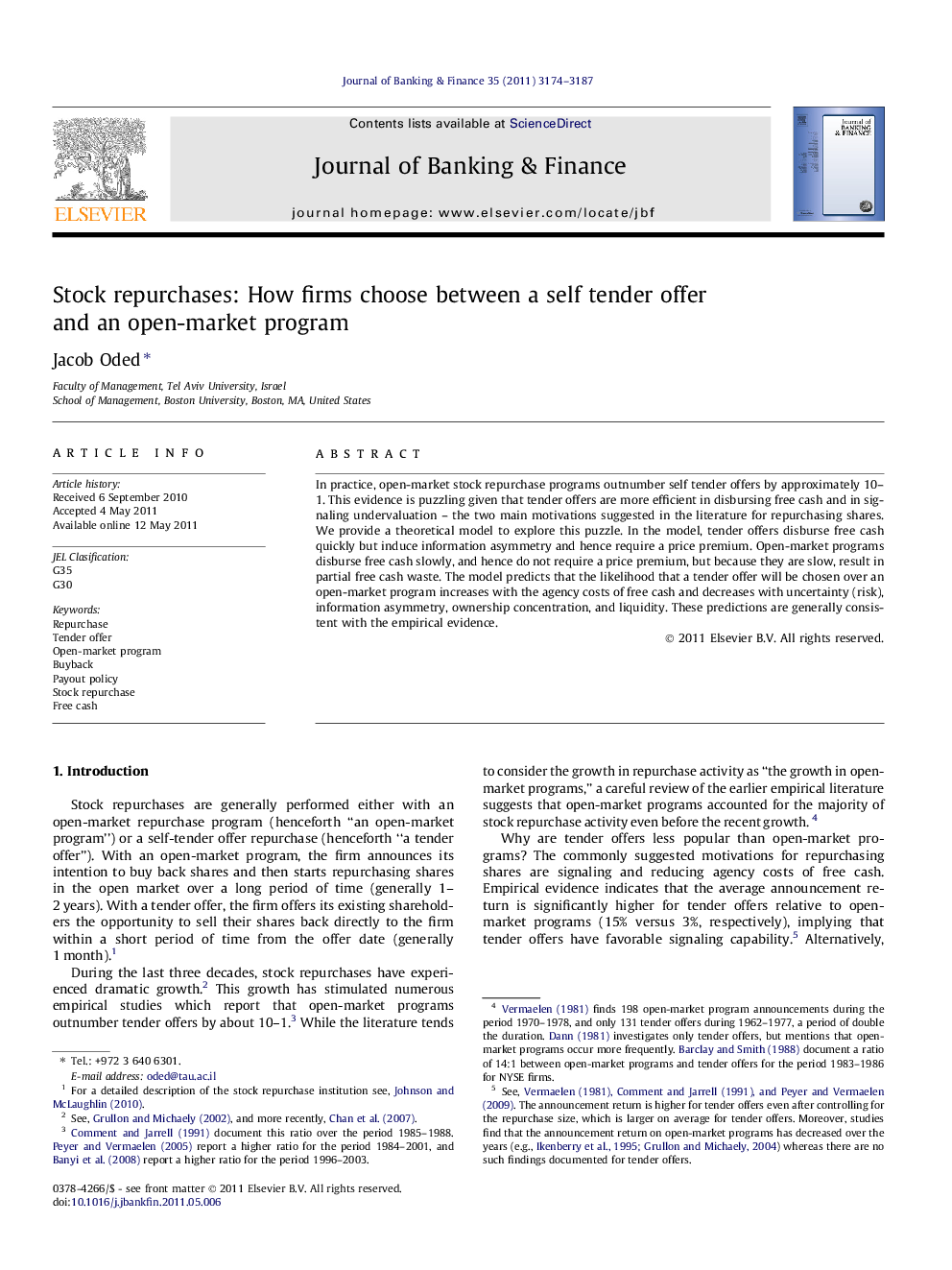| Article ID | Journal | Published Year | Pages | File Type |
|---|---|---|---|---|
| 5089651 | Journal of Banking & Finance | 2011 | 14 Pages |
Abstract
In practice, open-market stock repurchase programs outnumber self tender offers by approximately 10-1. This evidence is puzzling given that tender offers are more efficient in disbursing free cash and in signaling undervaluation - the two main motivations suggested in the literature for repurchasing shares. We provide a theoretical model to explore this puzzle. In the model, tender offers disburse free cash quickly but induce information asymmetry and hence require a price premium. Open-market programs disburse free cash slowly, and hence do not require a price premium, but because they are slow, result in partial free cash waste. The model predicts that the likelihood that a tender offer will be chosen over an open-market program increases with the agency costs of free cash and decreases with uncertainty (risk), information asymmetry, ownership concentration, and liquidity. These predictions are generally consistent with the empirical evidence.
Related Topics
Social Sciences and Humanities
Economics, Econometrics and Finance
Economics and Econometrics
Authors
Jacob Oded,
